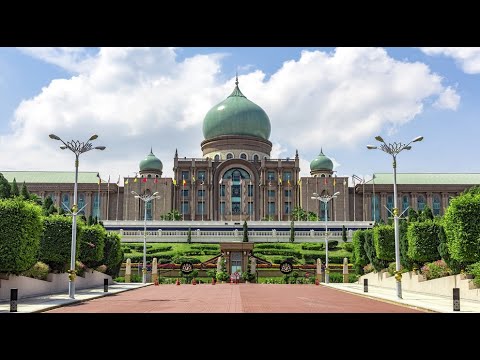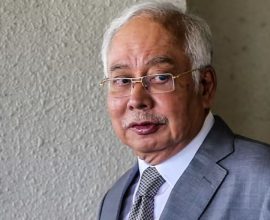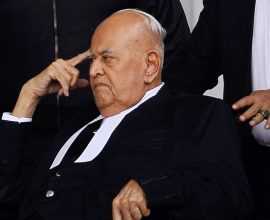What happens if the Prime Minister is incapacitated now?
Our Parliament is now in recess.
Our PM is in the hospital.
A date for Parliament’s meeting has not been finalised.
What happens if the PM is ill and cannot perform his duties?
[1] Where to look
Several sources may provide answers:
- Constitutional Provisions;
- Any Act of parliament that deals with it;
- Any Contingency Plan of the Cabinet pending Parliamentary approval; and
- Any ruling party rules.
Any contingency plan that the Executive may draw up is legally irrelevant – and unenforceable.
[2] The First Source is the Federal Constitution
There is nothing in the FC that directly deals with this issue.
Apart from saying that the PM is someone who enjoys the confidence of the Dewan Rakyat (Article 43 of the FC), there is no Succession Procedure in it.
[3] Look at the chronology of events since the PH and then the PN Government took power
It has been nothing short of a disaster.
The 14th General Election ended on the 9 of May 2018.1https://www.thestar.com.my/news/nation/2018/04/10/ge14-malaysia-polls-date/ The first time Parliament met after it was on 16 July 2018.
The last time Parliament sat was on 17 December 2020.
The King’s speech was given on 18 May 20202https://www.therakyatpost.com/2020/05/18/may-18-parliament-sitting-the-kings-speech/ but on that day no business was conducted. The PN Government did this to ‘side-step’ a constitutional problem in Art 55 of the Constitution: 6 months shall not pass between the last meeting of the last session and the first in the next. In a video entitled ‘Is the 18th May Parliamentary Meeting lawful?) I argued that this Parliamentary meeting was unconstitutional. (link).
On 12 January 2021, an Emergency was Proclaimed.3https://www.pmo.gov.my/2021/01/teks-ucapan-pengumuman-khas-darurat/
An Emergency Ordinance was declared by the PN Government.
Under those laws -which I again argued were unconstitutional- (link), Parliament was – unconstitutionally – put in ‘suspended animation’ until the current government drew the umbrage of the monarch on 29 June 2021.
On 29 June, 2021 his majesty summoned the two leaders of the houses. This resulted in PM8’s government reluctantly agreeing to summon Parliament on a date ‘before 1 August 2021’.4(https://www.theedgemarkets.com/article/agong-view-parliament-should-sit-soon-possible-enable-emergency-proclamation-be-tabled-%E2%80%94
[4] Where does the authority to appoint a PM come from?
Articles 40 and 43 of the Federal Constitution
The authority of the PM flows from the mandate given to him by the confidence of the Dewan Rakyat.
Article 43(2)(a) says:
‘… the [King] shall first appoint as Prime Minister to preside over the Cabinet a member of the House of Representatives who in his judgment is likely to command the confidence of the majority of the members of that House.’
But look at Article 43 clause (4) which makes this position clearer:
‘(4) If the [PM] ceases to command the confidence of the majority of the members of the House of Representatives, then, unless at his request the [King] dissolves Parliament, the PM shall tender the resignation of the Cabinet.’
If you read these articles together, my argument is, after a General Election, but before Parliament could be convened – because the nation cannot be without a Prime Minister, it is open for the King to use his powers only once under article 43(2)(a), to appoint an MP who commanded the confidence of a majority of the members of the Dewan Rakyat.
Thereafter, until the next election, so long as Parliament is in session, the prime minister’s selection is no longer in the hands of the King. On a proper construction of Article 43(2)(a) and clause (4) and constitutional law as practised in the Commonwealth nations, that power of ‘selection’ (not ‘appointment’) which is a ceremonial act of the King had passed into the hands of the members of the Dewan Rakyat.
The phrase that the PM is one who ‘commands the confidence of the majority of the members of the House of Representatives’ occurs in two different places in two different articles: 40(4) and 43(2)(a). This repetition is crucial for the understanding that the power to select (not the power to ‘appoint’) is in the hands of the MPs – and MPs only.
That should be the true understanding of articles 40 and 43, and how the Constitution should be interpreted. For your benefit I now reproduce the words of article 43.
‘Article 43(2)
The Cabinet shall be appointed as follows, that is to say:
(a) the Yang di-Pertuan Agong shall first appoint as Perdana Menteri (Prime Minister) to preside over the Cabinet a member of the House of Representatives who in his judgment is likely to command the confidence of the majority of the members of that House; and
(b) he shall on the advice of the Prime Minister appoint other Menteri (Ministers) from among the members of either House of Parliament;
but if an appointment is made while Parliament is dissolved a person who was a member of the last House of Representatives may be appointed but shall not continue to hold office after the beginning of the next session of Parliament unless, if he has been appointed Prime Minister, he is a member of the new House of Representatives, and in any other case he is a member either of that House or of the Senate.’
There is a poor argument that because Art 43(2)(a) states that the King ‘may act in his discretion’ in ‘the appointment of the Prime Minister’, and because of the phrase ‘who in the [King’s] judgement is likely to command the MPs confidence’, the King can appoint his own gardener as a Prime Minister.
Such an argument subverts the true spirit of the constitution.
In the description you can see the link to this video entitled— ‘Between elections, how many times can the King appoint a Prime Minister; or a Ruler of a State a CM?’ (link).
[5] Does the Constitution have a Contingency Plan for Successorship?
No. There are no Successorship provisions in the Constitution. Since 1957, Article 43 has remained unchanged.
[6] Do any Act of Parliament deal with it?
There are no acts of Parliament that deal with successorship.
[7] The several ‘legal’ problems the country faces
First, the King has never formally appointed any person as a Deputy Prime Minister. Even if His Majesty had, that is not part of the Constitution. Again, the designation ‘Senior Minister’ is ultra vires – meaning outside – the Constitution.
Second, there is no prior, publicly acknowledged Government Agreement over how power is to be transferred.
Third, nor did Parliament endorse any such agreement.
Fourth, even if such an ‘agreement’ existed, it is hardly likely that MPs in PN— who habitually jump to the highest bidder – would be in a position to agree to any line of succession.
They might jump ship again.
[8] So until the Government can show something legal, we must proceed upon general principles of constitutional law.
Historically, the Barisan Nasional coalition comprised several components parties based on race or religion. The United Malays National Organisation (UMNO) led the coalition.
That coalition had its own set of rules. Therefore, it was UMNO which decided who should succeed as PM if the incumbent PM became incapacitated. That was of course, outside the Constitution. It was hardly legal unless endorsed by Parliament.
PM Tun Razak succumbed to cancer and died in London, on 14 January 1976 . The then Deputy Prime Minister, the well-respected Tun Hussein Onn, was nominated by UMNO. The next day, the King endorsed his selection. Hussein Onn was declared the 3rd prime Minister of Malaysia. Hussein Onn did not rely on the royal appointment.
He put himself to the test. Eleven days after his appointment. On January 26, 1976, Hussein Onn convened an emergency meeting of Parliament.
There he sought a vote of confidence under Article 43.
He obtained it without any difficulty— because Barisan Nasional then had the numbers.
Tan Sri Mahiaddin was appointed as the 8th PM on 01 March 2021. He took no steps as did Hussein.
He did not seek a vote of confidence in Parliament. This continues to haunt his Government.
[9] The budget was passed by one of the narrowest ever votes in the history of Malaysia.
111 members voted to pass the budget. 108 MPs opposed it. Tengku Razaleigh Hamzah was absent. Two other MPs had died.
When I argued that the PM clearly did not ‘enjoy the support of most members of the Dewan Rakyat’, an argument – based on article 62(3) of the Constitution – was taken against me.
Art 62(3) states that ‘all decisions of Parliament were to be taken by ‘a simple majority of members voting’.
This argument is wholly inaccurate in testing the PM’s support.
[10] Let us test it.
[11] Under Standing Order 13 of the Dewan Rakyat, a proper ‘quorum’ to conduct any business is when 26 MPs – excluding the Speaker, are present.
Suppose only 40 MPs out of a total of 222 MPs had attended the budget debate. And suppose 39 voted in favour and one against.
Suppose the rest of the House, comprised in 182 MPs or 89% were absent from the chambers.
Despite the absence of 81% of the Dewan Rakyat, could it be argued that the bill had been successful?
Second, could it have been said that the PM enjoyed ‘the confidence of most of the members of the Dewan Rakyat’?
I think the answer is obvious.
In dealing with constitutional law, one must aspire to uphold the rule of law, and NOT raise pedantic arguments on any literal interpretation of the Constitution.
Such a pedantic constitutional interpretation violates the Rule of Law. That would not only be improper, it would be constitutionally wrong. It would lead to dangerous precedents – the results of all of which we are experiencing since 1 March 2019.
[12] We now come to the third option
Some MPs have always voted according to party instructions, as opposed to their own oaths of allegiance.
I have previously argued that MPs are fiduciaries – trustees – of the entire nation.
There is a Federal Court opinion – later approved by the Supreme Court in Government Of Malaysia v. Lim Kit Siang [1988] 2 MLJ 12, that an MP does not only represent his electoral constituency. He/She represents the entire nation.
When a MP votes on any resolution before Parliament, the only question he/she must have in her mind is whether:
‘If I cast my vote in the way I desire, will it benefit the nation?’
If the answer is ‘No’, no matter what the MP’s party instructs, if an MP votes against his oath of allegiance, he prejudices the best interest of the nation.
And he breaches two laws. The first is the Constitutional Oath in article 59 read with the Sixth Schedule to the Federal Constitution.
The oath of a member of Parliament reads:
‘I, … do solemnly swear that I will faithfully discharge my duties as such to the best of my ability, and I will bear true faith and allegiance to Malaysia, and will preserve, protect and defend its constitution.’
If an MP were to vote to elect a PM in accordance with his party’s instructions, then, he is not ‘faithfully discharging his duties to the best of his abilities’.
Second, he will not ‘bear true faith and allegiance to Malaysia’.
Neither will he ‘preserve, protect and defend [the Malaysian] constitution’.
So any attempt by a coalition of parties to influence the selection of a PM, based on a party’s selfish motivations, would be absolutely unconstitutional.
Any citizen could sue the MPs in the civil courts. Some people already have.
[13] The fourth choice: What if The King chooses the candidate?
An ex-attorney general has suggested that the king may, ‘interview Members of Parliament’ to ‘determine who shall be the PM’.
I think this misses a crucial constitutional point. I spoke about this a little earlier remember, on the relationship between Articles 40 and 43?
If the PM is incapacitated, and Parliament is in session, the only persons who can choose the PM are the rakyat.
Since 32 million people cannot come together in one place to choose a leader, it is not only constitutional, but logical for the Rakyat’s respective representatives, to do that.
That would be in keeping with the genuine spirit of article 43.
If the King, with the very best of intentions, exercises these exclusively parliamentary duties upon himself – whether Parliament is in session, or in recess if His Majesty conducts an Interview that is, with respect, not provided for in the Constitution.
With respect to his Majesty, that might cause controversy as had happened about 28 February 2020.
However, this is not likely as the King has made it very clear he will abide by the Constitution. And that is good!
[14] In conclusion
Any transfer of power from one PM to another depends on the mandate flowing from the floor of Dewan Rakyat.
If such an exigency presents itself, I hope His Majesty – as his Majesty has correctly and constitutionally directed the Speaker of Parliament – to call an immediate special sitting of Parliament – so that MPs can choose the one person who commands their confidence.
[15] Meanwhile,
I do hope PM Mahiaddin recovers from his bout of dyspepsia and returns to his duties promptly.
But these are only my views.





